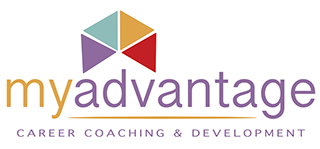by myadvantage | Mar 21, 2025 | Career Advancement, Career Advice, Career Change, Hiring, Job Market, Job Search, Job Seeker
The True Cost of Taking the Wrong Job – And How to Avoid It
Introduction:
A new job should be a step forward, not a setback. But taking the wrong opportunity—whether due to rushed decisions, lack of research, or misalignment with your goals—can lead to stress, burnout, and wasted time. Here’s how to avoid making a costly career mistake.
The Risks of Taking the Wrong Job:
- Job Dissatisfaction: Misaligned expectations can lead to frustration and a lack of fulfillment.
- Career Stagnation: A poor fit can stall your professional growth instead of advancing it.
- Financial Setbacks: Leaving a job too soon or not negotiating properly can affect your long-term earning potential.
- Mental & Emotional Strain: A toxic work environment or role mismatch can drain your energy and confidence.
How to Make the Right Career Move:
- Know What You Want: Define your career goals, work-life balance needs, and ideal company culture.
- Do Your Research: Investigate company values, leadership, and employee reviews before accepting an offer.
- Ask the Right Questions: In interviews, inquire about team dynamics, growth opportunities, and success metrics.
- Trust Your Instincts: If something feels off during the hiring process, it’s worth pausing to reassess.
- Work with a Recruiter: A trusted partner like The Deamer Group can help match you with the right opportunity—one that aligns with your skills, values, and long-term goals.
Conclusion:
The right job can propel your career forward, while the wrong one can set you back. Don’t let desperation or pressure push you into a decision that doesn’t serve you. The Deamer Group is here to help you find a role where you can thrive.
by myadvantage | Mar 12, 2025 | Career Advice, Job Market, Job Search, Job Seeker
Why Now Is the Time to Choose Employers Who Invest in HR
The workplace is changing rapidly, and as a job seeker or employee, you want to align with companies that prioritize their people. With evolving policies, new workplace expectations, and shifting job market trends, the companies that invest in their Human Resources (HR) teams and strategies are the ones best positioned to support, develop, and retain top talent—like you.
Workplace Policies Are Evolving—You Deserve Stability
With labor laws and policies shifting frequently, job security and clarity matter more than ever. Companies with strong HR teams stay ahead of these changes, ensuring fair compensation, transparent policies, and compliance with employment laws. When looking for your next opportunity, seek employers who demonstrate a commitment to keeping their workplace compliant and their employees informed.
Culture and Employee Experience Matter More Than Ever
A paycheck is important, but workplace culture, growth opportunities, and work-life balance are equally crucial. Companies that invest in HR foster inclusive workplaces, support employee well-being, and create pathways for advancement. If you’re evaluating job offers, consider how a company approaches talent development, engagement, and diversity—these factors directly impact your experience and success.
The Right Employer Will Invest in Your Growth
Professional development is a key part of career satisfaction. Organizations that prioritize HR often provide training, mentorship, and career advancement opportunities. They understand that employee growth is business growth. When choosing an employer, look for those who offer continuous learning opportunities, leadership development, and clear career paths.
A Strong HR Presence Means a Healthy Work Environment
HR teams play a crucial role in advocating for employees, addressing workplace concerns, and ensuring fair treatment. A company that values HR is a company that values its people. This means better communication, stronger leadership support, and a more transparent work environment.
What This Means for You as a Job Seeker
Now more than ever, job seekers have the power to be selective. Prioritize companies that:
- Have clear policies and communicate changes effectively.
- Invest in employee well-being through benefits, flexibility, and workplace culture.
- Offer career development programs that help you grow.
- Value HR as a strategic partner in business success.
The Bottom Line
Your career decisions shape your future. Choosing an employer that embraces HR and prioritizes employee success will lead to a more rewarding and fulfilling work experience. As you explore new opportunities, don’t just look at the job title—look at how the company supports its people. That’s where you’ll thrive.
Looking for a workplace that puts employees first? Start by seeking out companies that truly invest in HR.
by myadvantage | Feb 21, 2025 | Career Advancement, Career Advice, Career Change, Job Market, Job Search, Job Seeker, Storytelling
For ambitious professionals looking to step into leadership roles, the position of Chief of Staff (CoS) offers a unique and rewarding career path. Often seen as a stepping stone to executive leadership, the CoS role provides unparalleled exposure to high-level decision-making, strategic planning, and operational management. If you’re looking to accelerate your career while making a meaningful impact, this position may be the perfect fit.
What Does a Chief of Staff Do?
As a Chief of Staff, you act as a strategic partner to senior executives, ensuring that priorities are met, and initiatives move forward efficiently. Your responsibilities may include:
- Coordinating and aligning internal teams with leadership objectives
- Serving as a key liaison between departments to streamline communication
- Overseeing special projects and driving organizational initiatives
- Providing data-driven insights to support executive decision-making
- Representing leadership in meetings and managing high-level correspondence
Why Pursue a Chief of Staff Role?
The CoS position is more than just a job—it’s a transformative career move that offers immense professional growth. Here’s why:
1. Exposure to Executive Leadership
Working closely with senior leaders gives you firsthand experience in high-stakes decision-making and strategic execution—skills that are critical for future executive roles.
2. A Fast-Track to Career Growth
Many successful executives started their careers as Chiefs of Staff. This role equips you with a broad skill set, making you a prime candidate for C-suite positions in the future.
3. Diverse and Impactful Responsibilities
No two days are the same for a CoS. From managing key projects to troubleshooting organizational challenges, you gain hands-on experience in a variety of business functions.
4. Building a Strong Professional Network
In this role, you’ll collaborate with executives, department heads, and industry leaders, expanding your network and opening doors to future opportunities.
5. Developing a Strategic Mindset
By working alongside top executives, you’ll learn how to think critically, analyze complex problems, and drive solutions—key qualities for any leader.
How to Land a Chief of Staff Role
If you’re ready to take on this dynamic role, consider the following steps:
- Develop strong leadership, analytical, and project management skills.
- Gain experience in strategy, operations, or executive support roles.
- Build relationships with executives and mentors who can guide your career path.
- Showcase your ability to manage high-level projects and cross-functional teams.
At The Deamer Group, we connect talented professionals with career-changing opportunities. If you’re interested in stepping into the Chief of Staff role, contact us today to explore available positions.
by myadvantage | Feb 14, 2025 | Career Advice, Career Change, Job Market, Job Search, Job Seeker
Introduction
Valentine’s Day isn’t just about celebrating love — it’s also a perfect time to reflect on your relationship with your career. Just like in romance, finding the right job takes time, self-awareness, and a bit of matchmaking. At The Deamer Group, we believe that the right job is out there for everyone, and we’re here to help you discover your perfect professional match.
- Know What You Want
In both love and career, knowing what you’re looking for is key to success. Are you seeking a role that offers flexibility, leadership opportunities, or the chance to make a difference? Understanding your values, work preferences, and long-term goals will help you find a job that truly fits.
- Make a Strong First Impression
Your resume and interview are like the first date with a potential employer—they set the stage for what’s to come. A well-crafted resume highlights your strengths, accomplishments, and passion for the field. During an interview, be authentic, confident, and prepared to discuss how you can contribute to the company’s success.
- Find the Right Match
A great job is about more than just a paycheck—it should align with your personal and professional aspirations. Look for a company culture that supports your work style, values, and career growth. The right job will challenge, support, and inspire you.
- Commitment Matters
A great employer values you as much as you value them. Seek out companies that offer career development, mentorship opportunities, and a positive work environment. Organizations that invest in their employees create long-term, mutually beneficial relationships.
- Let Us Play Matchmaker!
At The Deamer Group, we specialize in connecting talented professionals with roles that align with their skills, experience, and aspirations. Whether you’re looking for a new opportunity or searching for the right candidate to join your team, we’re here to help you make the perfect match.
Conclusion
This Valentine’s Day, take a moment to consider your career happiness. Are you in a job that excites and fulfills you? If not, it might be time for a change. Let The Deamer Group help you find a role that makes you fall in love with your work again. Explore our open positions today and take the first step toward your dream job!
Ready to find your perfect job match? Contact The Deamer Group today or visit our website to browse open positions. www.thedeamergroup.com
by myadvantage | Nov 29, 2024 | Job Search

Job hunting can feel like an emotional rollercoaster—especially when your resume isn’t getting the attention you hoped for, or you’re not landing those elusive second interviews. The good news is that this is often an opportunity to recalibrate your approach rather than a reflection of your capabilities. Here are some actionable steps to help get you back on track:
1. Tailor Your Resume for Each Job
One of the biggest mistakes job seekers make is submitting a generic resume. Recruiters and Applicant Tracking Systems (ATS) can easily detect when a resume isn’t tailored to the specific job. It’s crucial to carefully read the job description and modify your resume to emphasize the skills and experiences most relevant to the position.
Pro Tip: Use keywords from the job posting in your resume to increase your chances of passing through the ATS filters.
2. Focus on Achievements, Not Just Responsibilities
Many resumes read like job descriptions, listing responsibilities rather than accomplishments. To stand out, focus on what you’ve achieved in each role rather than simply stating your duties. Quantify your successes where possible, as metrics are a powerful way to demonstrate impact.
Example: Instead of saying “Managed social media accounts,” say “Increased social media engagement by 30% through targeted campaigns.”
3. Enhance Your Personal Brand
In today’s competitive job market, having a personal brand can set you apart from other candidates. Ensure that your online presence, particularly LinkedIn, reflects your professional persona and supports your resume. Share relevant industry content, post insights, and engage with others in your field to build visibility.
Pro Tip: Make sure your LinkedIn profile is fully optimized with a professional photo, an impactful headline, and a compelling summary that echoes the key points from your resume.
4. Reassess Your Cover Letter Strategy
If you’re consistently not getting interviews, your cover letter might be part of the problem. A strong cover letter should be concise, enthusiastic, and tailored to the specific role. Rather than repeating what’s on your resume, use it as an opportunity to convey your passion for the position and the company.
Pro Tip: Research the company and incorporate what you’ve learned into your cover letter. Demonstrating that you understand the organization’s goals and culture can make a lasting impression.
5. Practice Interviewing Skills
If you’re landing initial interviews but not getting second ones, your interviewing technique may need work. Practice answering common questions, but also prepare for behavioral and situational questions using the STAR method (Situation, Task, Action, Result). Recording yourself or getting feedback from a career coach can help you refine your responses and delivery.
Pro Tip: Be prepared to ask insightful questions about the role and company. This shows you’re genuinely interested and engaged, and can leave a positive impression.
6. Request Feedback
When you’re consistently being passed over after the first interview, don’t be afraid to ask for feedback. While some companies may not provide it, others are happy to share insights on why you weren’t selected to move forward. This information can be invaluable for improving your performance in future interviews.
7. Leverage Networking
Sometimes, it’s not what you know but who you know. If you’re not getting interviews, your resume may not be the issue—it could be a lack of connections within the industry. Attend networking events, engage with industry groups online, and reach out to people in your field. Building relationships can sometimes help get your resume in front of the right people.
8. Consider Professional Help
If you’ve been job hunting for an extended period without success, it may be time to seek help from a professional. A career coach or resume writer can provide expert guidance and help you uncover any blind spots that may be holding you back.
Final Thought: Persistence Pays Off
The job search process can be daunting, but don’t get discouraged. Often, small adjustments to your resume, cover letter, or interview techniques can make all the difference. Stay persistent, keep learning from each experience, and continue refining your approach—you’ll get there!
By implementing these strategies, you’ll be well on your way to getting the attention your resume deserves and landing those second interviews that bring you closer to your next career opportunity.
—
As a hiring expert and career coach, my goal is to help you unlock your potential and achieve career success. If you’re struggling with your job search, feel free to reach out for personalized advice or guidance.

by myadvantage | Jun 28, 2024 | Job Search, Job Seeker
Hey there, remote work seeker! Ready to ditch the office cubicle and embrace the pajama-clad, coffee-sipping, work-from-anywhere lifestyle? You’re in luck because today, we’re spilling all the beans on how to snag your dream remote job in this wild, wild labor market.
1. Know Yourself, Know Your Skills: Before you dive into the remote job hunt, take a moment to figure out what makes you tick. What are you good at? What gets you excited? Knowing your strengths and preferences will help you narrow down your search to roles that truly fit you like a glove.
2. Spruce Up Your Resume and LinkedIn: Time to dust off that resume and polish up your LinkedIn profile! Show off your remote-ready skills and highlight any past remote work experience. And don’t forget to sprinkle in some remote-friendly keywords to catch the eye of those virtual recruiters.
3. Hit Up Remote Job Boards: Get scrolling on those remote job boards like FlexJobs and We Work Remotely. They’re like treasure troves filled with remote job opportunities just waiting for someone like you to snatch them up!
4. Network Like a Boss: Networking isn’t just for those fancy schmancy office types. Connect with fellow remote workers, join online communities, and flex those virtual networking muscles. You never know who might lead you to your next remote gig!
5. Show ‘Em You’re Remote-Ready: When you’re applying for remote jobs, make sure to show off your remote-friendly skills like a pro. Talk about how you’re a master of Zoom, Slack, and all things remote collaboration. They’ll be lining up to hire you in no time!
6. Nail That Remote Interview: Time to put on your best virtual smile and ace that remote interview. Prep like a pro, test your tech, and show ’em why you’re the perfect fit for their remote team.
7. Keep on Keepin’ On: Landing that dream remote job might take a bit of time and persistence, but don’t give up! Stay flexible, stay positive, and keep hustling until you find the remote job of your dreams.
And hey, if you’re feeling a bit overwhelmed or lost in the remote job hunt jungle, don’t sweat it! Our team of remote work gurus at myadvantage is here to lend a helping hand. Whether you need resume revamping, interview prep, or just a friendly pep talk, we’ve got your back.
So what are you waiting for? Let’s team up and make your remote work dreams a reality! Reach out to us at myadvantage and let’s kickstart your epic remote work journey together. Your future remote career is just a click away!


